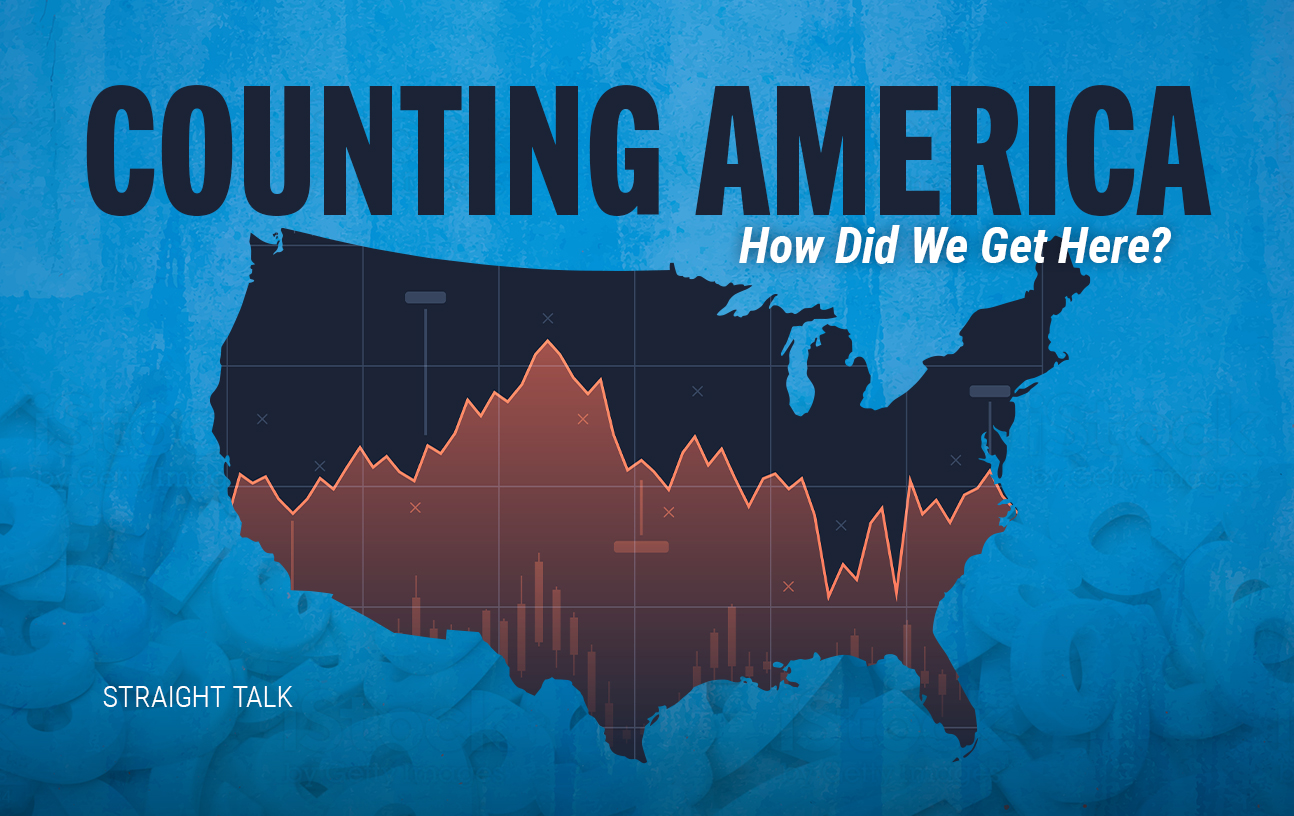Update: A late night ruling on Sept. 24 in U.S. District Court has ordered the federal government to extend counting for the 2020 Census for one more month, until Oct. 31. However, experts expect the ruling to be appealed.
Blue Cross and Blue Shield of Louisiana urges Louisianians to complete the census by the original Sept. 30 deadline. Being counted helps Louisiana get our fair share of federal funds, Congressional seats and electoral college votes.
I was watching a young mom the other day in my neighborhood, trying to get her kids to come inside for dinner. She got so mad, she started counting! “I’m only go
ing to give you to THREE, and then you’re gonna get it!”
She proceeded with her countdown while her little ones, screaming and laughing at the same time, ran full tilt toward the door. It was funny and nostalgic at the same time, because I can remember my mom doing the same thing to the five of us growing up! I think “the countdown” is a time-honored tactic parents adopted at some point in the past. I even heard a parent use it on a radio show from the 1930s! Gotta love that.
Speaking of counting, the count we do of our nation every 10 years, the 2020 Census, has been going on all year and is about to come to an end on Sept. 30.If there was ever a count you wanted to contribute to, or be a part of, the census is it! It’s quite the big deal for Louisiana.
Really Mike? Where’s all this counting come from?
The Constitution of the United States has a short passage, a blurb really, about counting the population every 10 years or so under a law set by Congress. No direction about who to count, what data to collect, or how to get it done; just a broad requirement to count something every 10 years.
From the first census in 1790 (U.S. population 3,929,214), all the way until the census of 1880, 90 years later (U.S. population 50,189,209), the count was actually done by U.S. Marshals; they were the only federal employees deployed in such a way as to get it done. By 1880, these Marshals were collecting the names of everyone in a household and basic information about employment and deaths. By the 1890 census, (U.S. population 62,979,626), specially trained census takers and supervisors replaced the Marshals completely, and the number of questions on the census began to grow rapidly.
In fact, the length and complexity of the census grew so quickly under Congressional supervision that, after the 1900 census (U.S. population 76,212,168), the U.S. Census Bureau was created under the Department of the Interior. For the first time, the census became a department of the government that never disbanded; it just kept on keeping on. Today, the Census Bureau resides under the Department of Commerce and operates full time (last census in 2010 – U.S. population 308,745,538!).
The 2020 Census data will be used in many ways, but the one we need to be especially concerned about today revolves around the allocation of federal resources from state to state. Louisiana is constantly fighting for federal resources with the other 49 states, and, since our residents represent fewer than 2% of the nation’s population, we need to make sure we count everyone. To make things a bit more stressful, the last time I looked, Louisiana was well below the U.S. average in the percentage of households who had filled out their 2020 Census forms.
Come on Mike, it’s the census! How big a deal is it?
The United States House of Representatives has spending authority for around $4 trillion a year. It’s composed of 435 members allocated by state. Ever wonder why California has 53 Representatives, Texas has 36, and New York has 27, while Louisiana only gets six? Did you know we had seven representatives right up until 2010, when we lost one because of the 2010 Census counts? Only six Representatives, out of 435, up there in Washington, D.C., fight for our benefits, especially when a crisis hits, like Hurricane Laura, or COVID-19.
Did you know, the winner of the upcoming presidential election will be determined by a vote of the Electoral College? There are just 538 votes to go around, and each state gets a share. Guess how many of those the candidate who takes Louisiana gets? Just eight. And that setup is also census-driven.
The only way to fix this and gain broader representation for our state is for our 2020 Census counts to grow. We need to get counted, and fast. The current census closes on Sept. 30 – about a week left!
Mike, how do I get counted?
Start here, right now: my2020census.gov
The website will ask you for a code that you should have gotten by mail. If you do not have the code, DO NOT STOP! Click the link under the request that says, “I did not receive a code” and keep going. The census site will still let you submit your information. The Feds will sort out duplicate answers if there are any, later on.
Recent research shows pretty clearly that, last year, almost $2 trillion of the federal budget was parceled out to various states by Congress based SOLELY ON CENSUS DATA! Your state, your friends and neighbors could really use your help.
Straight Talk is, filling out the census once every 10 years is our obligation as American citizens. It only takes a few minutes. Do it for your friends, family, state, and yourself!





Leave a Reply